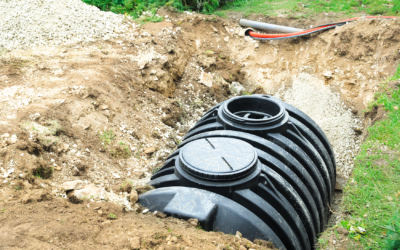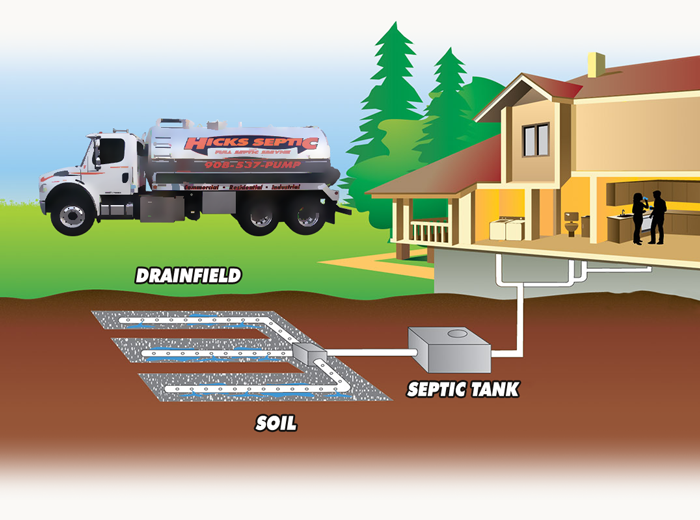Trusted Septic Installations for Residential Characteristics
When it comes to the necessary infrastructure of residential properties, trusted septic setups play an essential function in making sure efficient waste monitoring systems. Comprehending the complexities of septic setups, from picking the suitable system to the installment process and subsequent maintenance, is paramount for homeowners seeking a reputable and resilient remedy for their residential property's sewer requirements.

Benefits of Reputable Septic Setups
Installing a trusted septic tank not only makes sure efficient wastewater administration however additionally promotes ecological sustainability and residential property worth retention. By buying a properly designed septic tank, property owners can considerably lower the threat of groundwater contamination and surface water air pollution. Appropriately treated wastewater from septic tanks can help safeguard local water resources and environments, adding to a much healthier atmosphere for both existing homeowners and future generations.

Additionally, a reputable septic tank can enhance the overall residential or commercial property value. Potential purchasers are usually going to pay more for a home with a properly maintained septic system in position, as it signifies a commitment to building maintenance and environmental obligation. This can offer house owners an one-upmanship in the property market and make sure a better roi over time.
Selecting the Right Septic System
After recognizing the advantages of trustworthy septic installments, the next essential action for house owners is to very carefully select the proper septic system that straightens with their building's specific needs and ecological considerations. When selecting a septic tank, it is important to think about elements such as residential or commercial property size, dirt type, aquifer degree, and local regulations.
For smaller residential or commercial properties or those with restricted room, a traditional septic tank might appropriate. These systems include a sewage-disposal tank and a drain field and work for residential or commercial properties with sufficient soil permeability. On the other hand, bigger residential properties or locations with high water tables may require advanced systems like aerobic treatment systems or pile systems to guarantee appropriate wastewater therapy.

It is likewise crucial to analyze the upkeep needs and lasting expenses connected with different septic systems. Home owners need to take into consideration variables such as pumping frequency, assessment needs, and possible repair work when making their decision. By thoroughly reviewing these considerations, homeowners can pick a septic tank that not just meets their residential or commercial property's demands however also promotes ecological sustainability.
Factors to Take Into Consideration Prior To Installation
Prior to continuing with the setup of a septic tank, extensive website assessment and soil screening are vital steps to guarantee optimum functionality and longevity of the system. Site assessment includes assessing variables such as the residential property's topography, closeness to water sources, and the dimension of the residential or commercial property to establish the most ideal location for the septic system. Soil testing is essential to understand the dirt make-up and its ability to properly deal with and filter wastewater. The soil's leaks in the structure, texture, and deepness play a substantial function in establishing the type and size of the septic system needed. In addition, local policies and licenses should be thought about before installment to make sure compliance with environmental and health requirements (water line repair lancaster oh). Assessing the residential property's aquifer degree is additionally crucial, as a high water table can influence the system's efficiency. By meticulously thinking about these aspects before installment, property owners can ensure a dependable and reliable septic system customized to their home's certain requirements.

The Installment Process Described
To start the installment procedure of a septic system for a residential home, the very first action includes mindful excavation of the marked location excavation company lancaster oh adhering to the approved site plan. After the installment is full, a last inspection is conducted to guarantee that the septic system satisfies all policies and functions efficiently. Correct installation is vital for the lasting capability and performance of the septic system, making certain a reliable wastewater therapy remedy for the household property.
Upkeep Tips for Longevity
Correct upkeep of the septic tank is necessary to ensure its long life and proceeded efficient procedure, following the precise setup procedure necessary for domestic buildings. Routine pumping is essential to avoid solids from building up in the container and possibly obstructing the system. It is recommended to have the sewage-disposal tank examined and pumped every 3-5 years, depending upon household dimension and water use. Furthermore, being conscious of what is flushed down the tubes can significantly affect the wellness of the septic tank. Avoid flushing non-biodegradable things, chemicals, grease, and extreme quantities of household cleaners, as these can interfere with the all-natural biological procedures within the container. Conserving water use by dealing with leaks and spreading out washing lots can also help preserve the balance within the system. Keeping a healthy and balanced drainpipe field by avoiding from driving or constructing over it, growing trees at a secure range, and staying clear of the usage of hefty equipment on the location can expand the overall life expectancy of the septic system.
Final Thought
By choosing the best septic system and taking into consideration vital elements before installment, homeowners can appreciate a convenient and long-lasting service. The installation procedure should be brought out meticulously, and regular maintenance is needed to lengthen the life expectancy of the septic system.
 Shaun Weiss Then & Now!
Shaun Weiss Then & Now! Angus T. Jones Then & Now!
Angus T. Jones Then & Now! Kirk Cameron Then & Now!
Kirk Cameron Then & Now! Meadow Walker Then & Now!
Meadow Walker Then & Now! The Olsen Twins Then & Now!
The Olsen Twins Then & Now!